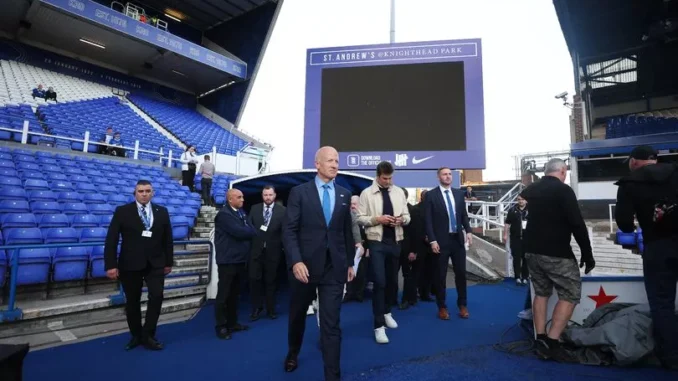
Birmingham City Owners Knighthead Never Do What Aston Villa Have Done
In the landscape of English football, Birmingham City and Aston Villa have a rivalry that transcends mere local pride. Historically, these two Midlands clubs have often found themselves compared—whether it’s their success on the pitch, their stature, or their ownership structures. In recent years, Aston Villa has undergone a remarkable transformation under the ownership of Nassef Sawiris and Wes Edens, while Birmingham City, under the stewardship of Knighthead Capital Management, has followed a different, more calculated approach. This divergence highlights the stark differences in strategy and ambition between the two clubs’ owners.
Since the Egyptian billionaire Nassef Sawiris and American businessman Wes Edens took control of Aston Villa in 2018, the club has embarked on an ambitious journey to reclaim its place in English football’s elite. Their tenure has been marked by heavy investment in the playing squad, state-of-the-art facilities, and an emphasis on long-term sustainability.
Villa’s owners have not been shy in splashing out on star signings. They broke their transfer record on multiple occasions, bringing in high-profile players like Ollie Watkins, Emiliano Buendía, and, most notably, the £100 million transfer of Jack Grealish to Manchester City—a move that demonstrated Villa’s ability to negotiate at the top table. In addition to player recruitment, the owners have invested in Villa Park, improving infrastructure and expanding the stadium’s capacity to meet the demands of a club with growing aspirations.
Their approach has been ambitious, bold, and direct—a testament to their desire to make Aston Villa a mainstay in the Premier League’s top half and return to European competition. This willingness to invest heavily in both talent and infrastructure sets Villa apart from many clubs in the league. Knighthead Capital’s Measured Approach at Birmingham City
In contrast, Knighthead Capital Management, the American investment firm that acquired a majority stake in Birmingham City in 2023, has adopted a more cautious and financially conservative approach. Rather than focusing on big-money signings or rapid changes, Knighthead’s strategy seems focused on stabilizing the club, which had struggled for years both on and off the pitch under previous ownership.
Knighthead’s co-founders, Tom Wagner and Matthew Kessler, have spoken about the importance of building a sustainable future for Birmingham City, prioritizing long-term stability over short-term success. They have worked to bring financial discipline to the club, addressing issues such as legacy debt, restructuring the club’s finances, and improving the club’s operational efficiency. The emphasis on sustainability over aggressive investment is a marked contrast to Aston Villa’s approach.
Why Knighthead Won’t Follow Villa’s Lead
While both clubs have ambitious owners, it is unlikely that Birmingham City’s new leadership will emulate Aston Villa’s high-risk, high-reward strategy. There are several reasons for this:
Focus on Financial Sustainability: Knighthead’s business philosophy is rooted in financial prudence. They are more focused on creating a financially stable foundation for the club rather than aiming for immediate Premier League success. This is a longer-term project, aiming to build from the ground up, rather than a quick fix through heavy spending.
Infrastructure Overhauls: Unlike Aston Villa, where stadium upgrades are part of an aggressive expansion plan, Knighthead has initially prioritized practical investments, such as modernizing St. Andrew’s stadium and revamping the club’s training facilities. This indicates a preference for sustainable growth, starting with the basics before any major steps toward on-pitch success.
Youth Development: Birmingham City has historically had a strong youth system, with academy graduates like Jude Bellingham making waves at the highest levels. Knighthead seems poised to continue nurturing young talent, emphasizing youth development as a cornerstone of their long-term strategy, rather than focusing on star signings as Villa has done.
Market Realities: Birmingham City’s current position in the Championship, compared to Villa’s established Premier League status, means that Knighthead’s more reserved strategy may reflect the realities of the financial gap between the top tiers of English football. Competing with Premier League clubs on transfer fees and wages would be unsustainable for Birmingham at this stage.
While Aston Villa’s ownership has made headlines with its bold and aggressive approach to transforming the club, Birmingham City’s Knighthead Capital is playing a different, more measured game. Their vision focuses on long-term stability, infrastructure, and youth development. These two rival clubs are on different trajectories, and it’s clear that Knighthead will not follow in the footsteps of Aston Villa’s owners. For Birmingham City, the path to success will be slower and steadier, but one that aims to build a lasting foundation for future success.
Read more on;https://sportupdates.co.uk

Leave a Reply